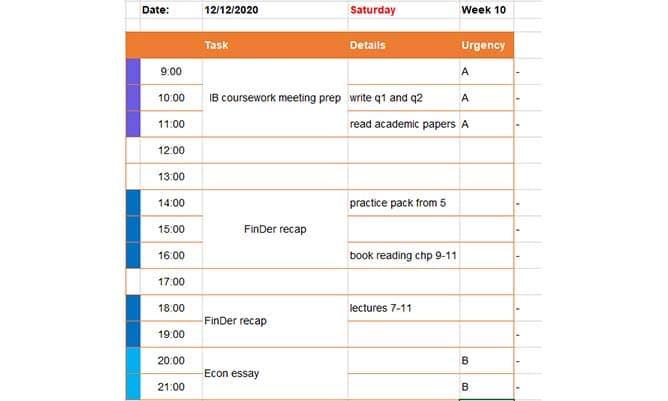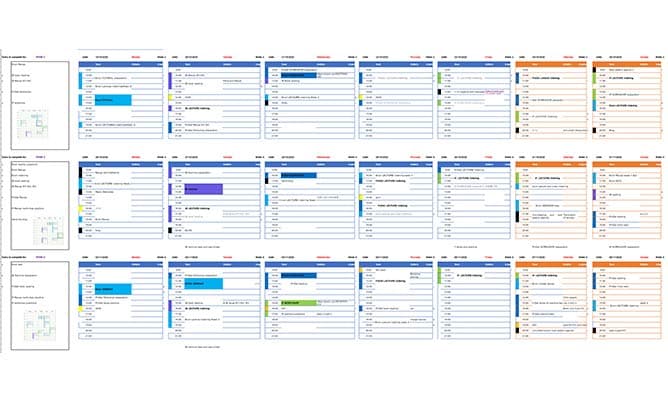Although it is now Easter break, right after these holidays come the last lectures and then there are… the Exam season and deadlines. After surviving two online exam-seasons, I have come up with some tips for revision that helped me greatly during the exam period of January.
Here I share them with you:
1) Plan your revision strategically.
Making plans for the revision period sounds obvious and simple, but planning it strategically can boost significantly the effectiveness of your revision. I always use an Excel spreadsheet to organize my studies and extracurricular works. When approaching exam periods, I will work backwards from the date of the exams on what I need to study.
- I normally make a list of the tasks that I need to complete for each subject (e.g., revise workshop/ seminar material, do past papers, read academic papers, etc.) and identify the most important ones, such as revising topics that I am not fully familiar with.
- Then, I will split the tasks over the revision period until approaching the exam dates, placing the most important tasks as firsts to complete. This strategy helps me to reasonably organize all the topics and materials I need to revise, so I don’t end up in a last-day rush.
Another tip is to assign a colour for each subject, so when you organize your work, you can directly visualize how much time you are spending on each subject (reasonably organizing the time you dedicate to each subject is also part of the strategy! You should spend more time for 20-credits courses than for 10-credits subjects).
Excel is highly customizable for designing the best agenda that suits your needs. However, if you need a template, here is an example of how I organize my agenda:

Here is another screenshot of an overview of my agenda for 3 weeks:

2) Have your references ready!
As business students, most of your exams will be essay-based. Therefore, extra reading is extremely important for getting a first class. Whether it is the mandatory reading list that lecturer provided or extra reading that you found on your own, have them already classified and prepared beforehand can save a great amount of time during exams.
Normally I classify my reading list into different strands of literature and tag each of the papers with their main argument. This helps me not only to be quicker at writing, but also coming up with better evidence-supported arguments.
In my January’s blog: “Tips and tools for writing a first-class essay”, I share a few but very useful tips and tools for writing essays (including citation tools, highlighting…).
3) Stay physically and mentally healthy.
After seven weeks of intensive classes, you have definitely earned a well-deserved Easter break, but make sure you keep exercising regularly to keep your brain at its full potential. Physical exercise can strengthen your concentration and thus improve the effectiveness of your revision. You won’t want to start practising a past paper when your brain is out of your control. You will feel much better mentally and physically (perhaps?) after exercising!
4) DON’T PROCRASTINATE!
The last tip and the most important one. Don’t leave everything to the last few weeks, this strategy may have worked during A-levels, but not at university! Neither with open-book exams! Your independent thinking beyond the lecture materials is critical for achieving a good mark. For this to happen, you need to carry everything up to date. There is no fluke after procrastinating everything you needed to have done!
I hope these tips would help! Good luck with the revision and with the exams!


